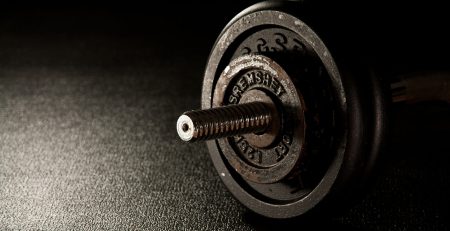Do BCAAs speed up recovery?
BCAAs and Recovery
A popular claim of BCAAs is improving post exercise recovery. Workouts cause damage to muscle tissue which the body repairs during rest. During rest, the body needs sufficient amounts of nutrients, including protein and essential amino acids to adequately recover.
Because BCAAs are thought to increase protein synthesis, they may also aid the body in recovery by more quickly repairing exercise induced muscle damage. A faster recovery means more gains in a shorter amount of time.
What does the research say about BCAAs and recovery?
Study 1: The effects of acute branched-chain amino acid supplementation on recovery from a single bout of hypertrophy exercise in resistance-trained athletes1
This study looked at the effects of BCAA supplementation on recovery from strength training. The study included 16 participants that were split between a supplement and placebo group.
The participants completed six sets of squats. Researchers then measured creatine kinase (a marker of muscle damage), knee extensor force, perceived soreness, and jump height before and at 1, 24, and 48 hours post exercise.
Results showed BCAA supplementation improved several of the measurements of muscle damage including knee extensor force, jump height, and perceived muscle soreness.
Study 2: Impacts of combined or single supplementation of branched-chain amino acids on delayed onset muscle soreness and muscle damage following resistance exercise2
The next study looked at the effects of BCAAs taken together compared to each amino acid (leucine, isoleucine, and valine) taken separately on muscle soreness and damage. Fifty males were split into five groups: 1) leucine, 2) isoleucine, 3) valine, 4) BCAA, 5) placebo. Participants took a supplement or placebo before and immediately following their workout.
The results showed that the supplement groups improved multiple measures of recovery. Leucine on its own, more than the other supplements, showed the most effect on improving recovery. The BCAA group showed the quickest return to a sore-free, normal, range of motion. The placebo group had the highest level of perceived pain. Researchers concluded BCAAs, and especially leucine, had the ability to improve recovery.
Study 3: Exercise-induced muscle damage is reduced in resistance-trained males by branched chain amino acids: a randomized, double-blind, placebo controlled study3
The final study looked at the effects BCAA had on certain markers of recovery including before and after measurements of vertical jumps, muscle soreness, contraction power, and creatine kinase. Twelve males received either a supplement or placebo. The results showed a larger reduction in creatine kinase (shows recovery is happening) and muscle soreness in the BCAA group. Additionally, contraction power was greater with the supplement. The two groups showed similar performance on the vertical jump.
The researchers concluded BCAAs improved recovery because of their ability to increase protein synthesis.
The Bottom Line – Do BCAAs improve recovery after a workout?
The evidence does show BCAAs have at least some ability to improve the recovery process. All three studies demonstrated this on some level. Whether or not this translates to a practical application is debatable. These studies compared BCAAs to non-protein placebos. In the real world, when is the choice of a post workout meal or shake ever between BCAAs and a supplement without any protein? Probably never.
In one study, researchers compared the rates of protein synthesis in 25 grams of whey protein to a leucine/essential amino acid mix. They found the whey protein did better. They also found 25 grams of whey did a better job at maintaining protein synthesis longer than the leucine/essential amino acid mix4.
Yes, when compared to no protein at all, BCAAs likely improve recovery. When compared to other sources of protein, BCAAs might not provide as much, if any, benefit. Most protein sources contain ample amounts of BCAAs. Supplementing more BCAAs into a product which already contains them may not be very beneficial. In circumstances when a larger post workout shake or meal are unavailable, a quick “shot” of BCAAs are probably beneficial. Another scenario in which BCAAs may be beneficial is when using low in these amino acids.
Do branched chain amino acids improve recovery? – Supplement Database
References
- Waldron, M., & Whelan, K. (2017). The effects of acute branched-chain amino acid supplementation on recovery from a single bout of hypertrophy exercise in resistance-trained athletes. Applied Physiology, Nutrition, and Metabolism, 42(6), 630-636. doi:10.1139/apnm-2016-0569
- Asjodi, F., & Khotbesara, R. (2018). Impacts of combined or single supplementation of branched-chain amino acids on delayed onset muscle soreness and muscle damage following resistance exercise. Progress in Nutrition, 20(2). doi:10.23751/pn.v20i2.5825
- Howatson, G., & Hoad, M. (2012). Exercise-induced muscle damage is reduced in resistance-trained males by branched chain amino acids: A randomized, double-blind, placebo controlled study. Journal of the International Society of Sports Nutrition, 9(1), 20. doi:10.1186/1550-2783-9-20
- Churchward-Venne, T. A., & Burd, N. A. (2012). Supplementation of a suboptimal protein dose with leucine or essential amino acids: Effects on myofibrillar protein synthesis at rest and following resistance exercise in men. The Journal of Physiology, 590(11), 2751-2765. doi:10.1113/jphysiol.2012.228833









